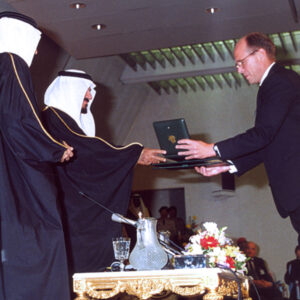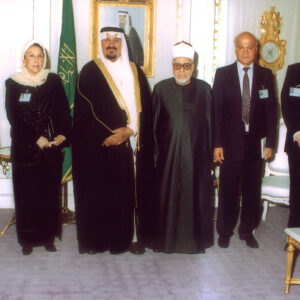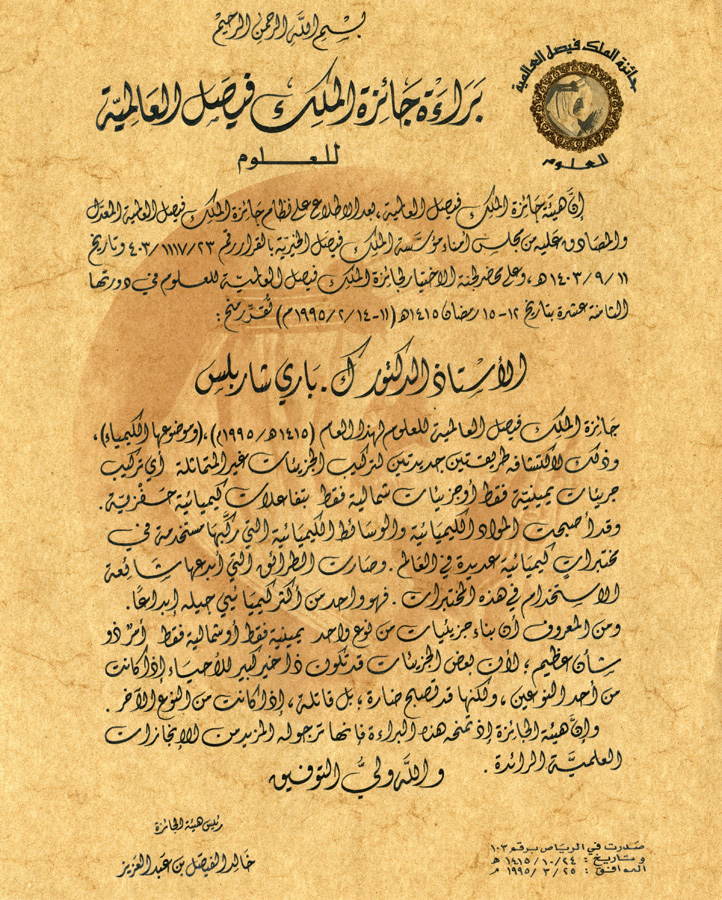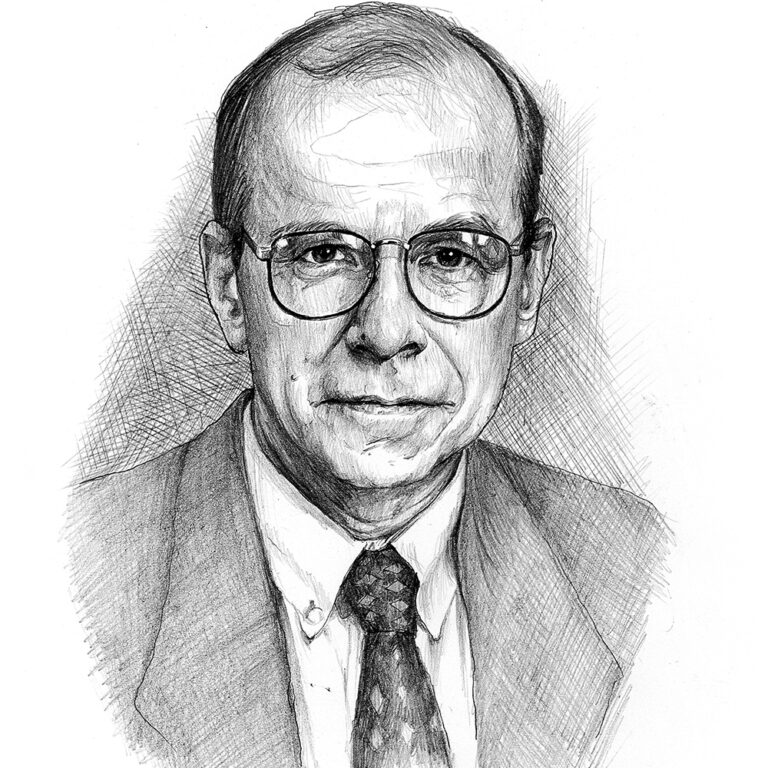
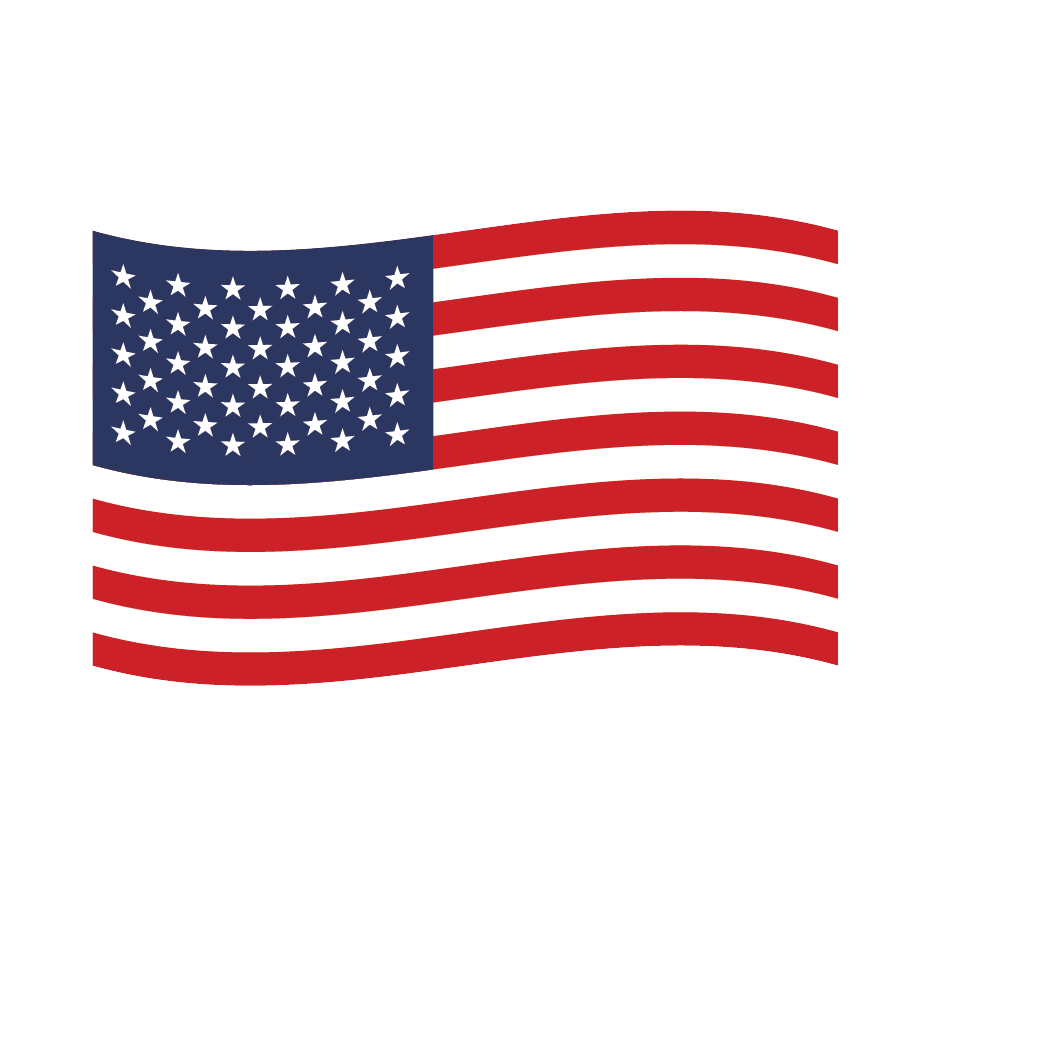
Professor K. Barry Sharpless
King Faisal Prize in Science 1995 Laureate
Topic: "Chemistry"
It has been my life’s desire to create chemistry that is not only new, but also truly useful

Karl Barry Sharpless received his bachelor’s degree from Dartmouth College and Ph.D. in Chemistry from Stanford University. Following post-doctoral fellowships at Harvard and Stanford universities, he pursued an academic and research career and became a Professor at Massachusetts Institute of Technology in 1970. In 1990, he was appointed as the William M. Keck Chair of Chemistry at the Scripps Research Institute in La Jolla, California.
Professor Sharpless’s research interest centers on asymmetric catalysis involving both early and late transition metal-mediated processes. His landmark research led to the development of chiral catalysts for organic oxidation, resulting in the production of enantiomerically-pure compounds with new properties. His technique is dubbed “mirror image chemistry.” Today, the results of his prodigious work are used in the industrial syntheses of pharmaceutical products, including certain antibiotics, heart medicines, anti-inflammatory drugs and antidepressants. Among his many earlier contributions are the synthesis of malabaricane diol, the elucidation of mechanisms of allylic oxidation of olefins by selenium dioxide and the discovery of the first organoselenium reagents for use in organic synthesis.
Professor Sharpless published more than 200 papers. His remarkable achievements in chemistry were punctuated by numerous prestigious awards and honors including the Tetrahedron Prize, the Arthur C. Cope Award, the Prelog Medal (Switzerland), and the Paul Janssen Prize (Belgium). He was also awarded honorary doctorates from Dartmouth College, the Royal Swedish Institute of Technology, Technical University of Munich.
This biography was written in the year the prize was awarded.
- He received many awards and honors including:
- Roger Adams Award in 1997.
- Thomson Reuters Citation Award in Chemistry in 1997.
- Honorary Fellowship of the Royal Society of Chemistry in 1997.
- Scheele Medal of the Swedish Academy of Pharmaceutical Sciences in 1991.
- Chemical Sciences Award of the National Academy of Sciences in 2000.
- Chirality Medal in 2000.
- John Scott Medal in 2001.
- Benjamin Franklin Medal in 2001.
- Wolf Prize in 2001.
- Nobel Prize in Chemistry in 2001.
- Honorary Membership of the Kitasato Institute, Japan in 2002.
- William H. Nichols Medal in 2006.
- Medal of Honor from the Institute of Chemistry of Sao Carlos in 2010.
- Priestley Medal in 2019.

